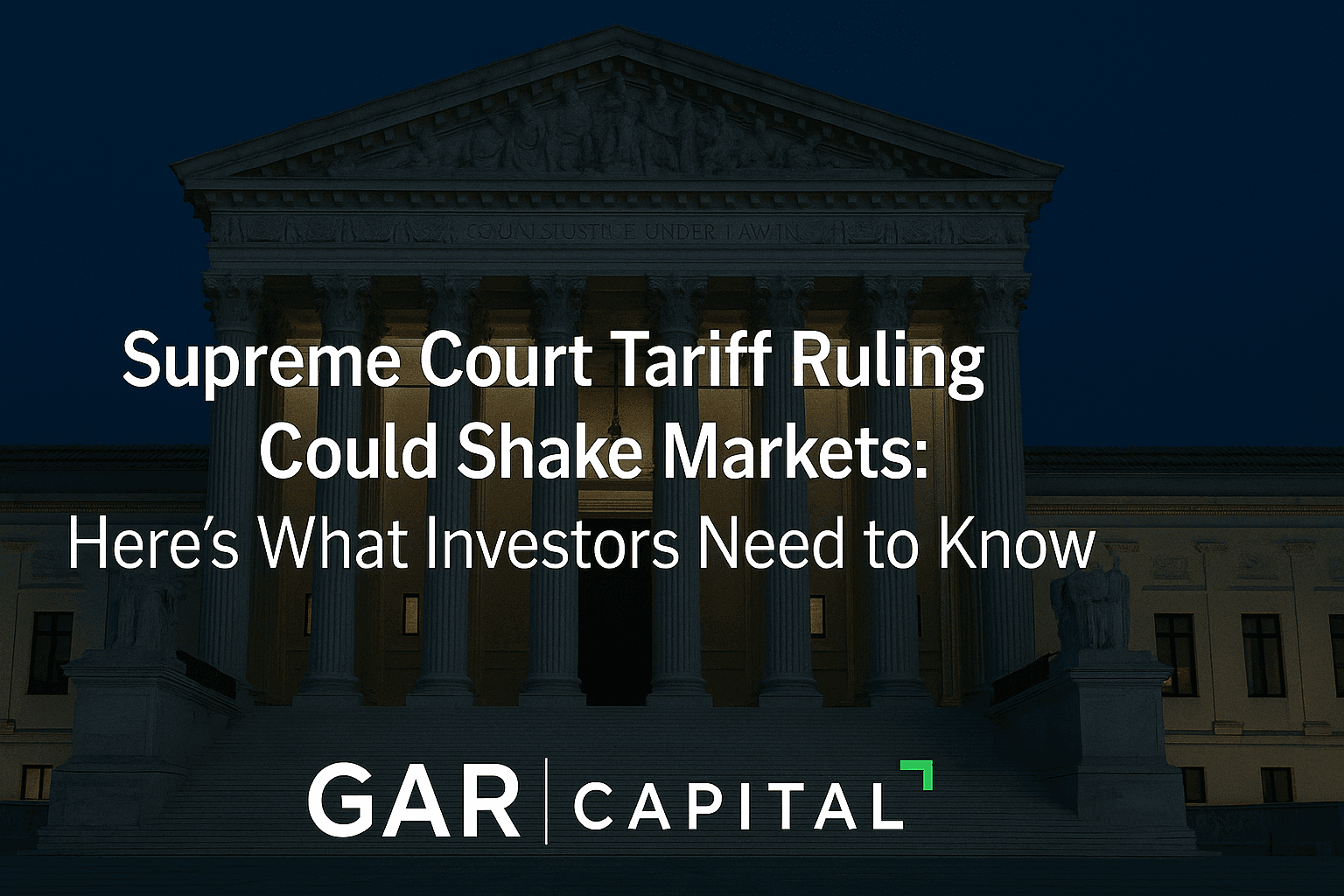Summary
The Supreme Court’s decision on Trump-era tariffs could reshape global trade, inflation, supply chains, and investor sentiment. Here’s how markets may react whether the tariffs are upheld or struck down — and what sectors stand to win or lose.
Economic Data
No economic data this week..
📚 Deep Dive 📚
The Supreme Court, Tariffs, and the Market: What’s Really at Stake
“The markets can handle good news or bad news — what they hate most is uncertainty.”
The Supreme Court is gearing up to decide whether President Trump’s sweeping tariffs are constitutional — a ruling that could shake global trade, corporate margins, inflation expectations, and investor sentiment. The court’s decision won’t just affect Washington; it could ripple through Wall Street and Main Street with real economic consequences.
What’s This Case Really About?
At the center of the showdown is the International Emergency Economic Powers Act (IEEPA) — the legal framework Trump used to justify broad tariffs on imported goods. Lower courts ruled that these tariffs overstepped presidential authority, setting the stage for a historic Supreme Court review.
If the justices strike them down, it won’t just be a trade story — it will define how much unilateral power any president has to impose tariffs without congressional approval.
Scenario 1: Tariffs Overruled — Markets Cheer (With Caveats)
If the Supreme Court overturns the tariffs, markets would likely read it as a risk-on green light.
Why it’s bullish:
- Clarity returns. Investors finally get relief from years of trade and policy uncertainty.
- Lower costs. Import-heavy industries — manufacturing, autos, retail — would see margin relief.
- Supply chains stabilize. Businesses get a cleaner runway for planning, investment, and expansion.
But here’s the curveball: Overturning the tariffs could force the government to refund duties already collected — estimates run $750B to $1T. That’s a massive financial liability in a deficit-heavy environment.
So yes, stocks likely pop on day one — but traders will immediately turn to the next question: How will Treasury absorb the hit, and what replaces the old tariff structure?
Scenario 2: Tariffs Upheld — Uncertainty Stays
If the Court rules in favor of the tariffs, nothing immediately changes — and that’s the problem.
Implications:
- Businesses keep operating under unpredictable cost conditions.
- Inflation pressure sticks for goods dependent on imported materials.
- Domestic producers gain a slight edge, but exporters face tougher competition abroad.
This isn’t a market crash scenario — it’s a continuation of trade friction. Expect sector-by-sector movement: industrials and importers could drag, while domestic plays with fewer international pressures hold stronger.
The Bigger Picture
This case is bigger than tariffs. It’s about policy clarity.
Markets don’t need everything to be perfect — they just need to know the rules. Fiscal stability, trade policy, regulatory direction… clarity drives confidence, investment, and risk-taking.
- Tariffs overturned: short-term optimism, risk-on strength, but fiscal headlines will dominate.
- Tariffs upheld: muted reaction, continued uncertainty, fragmented sector performance.
Either way, the market will reprice fast once the ruling drops.
Bottom Line
- If tariffs are struck down: Stocks rise, trade-heavy sectors lead, but watch for refund/liability shocks.
- If tariffs are upheld: Expect a flat-to-choppy reaction and continued uncertainty.
- In both cases: Volatility follows clarity — markets move sharply when the fog lifts.
Investing always carries risk. Policies — even well-meaning ones — can create new winners and losers overnight.
In this game, uncertainty is expensive. Clarity, even when painful, is bullish.


